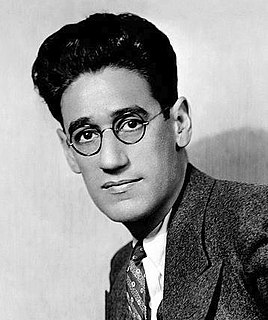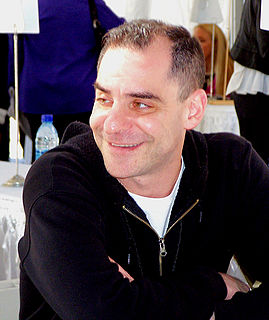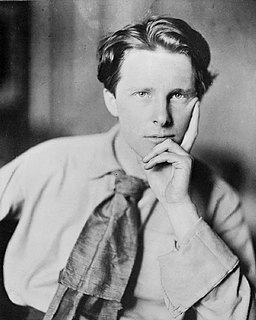A Quote by George S. Kaufman
Epitaph for a dead waiter - God finally caught his eye.
Related Quotes
God is dead. Let us not understand by this that he does not exist or even that he no longer exists. He is dead. He spoke to us and is silent. We no longer have anything but his cadaver. Perhaps he
slipped out of the world, somewhere else like the soul of a dead man. Perhaps he was only a dream...God is dead.
I always remember an epitaph which is in the cemetery at Tombstone, Arizona. It says: 'Here lies Jack Williams. He done his damnedest.' I think that is the greatest epitaph a man can have - When he gives everything that is in him to do the job he has before him. That is all you can ask of him and that is what I have tried to do.
Do we, mad as we all are after riches, hear often enough from the pulpit the spirit of those words in which Dean Swift, in his epitaph on the affluent and profligate Colonel Chartres, announces the small esteem of wealth in the eyes of God, from the fact of His thus lavishing it upon the meanest and basest of His creatures?
The term 'epitaph' itself means 'something to be spoken at a burial or engraved upon a tomb.' When an epitaph is a poem written for a tomb, and appears in a book, we are aware that we are not reading it in its proper form: we are reading a reproduction. The original of the epitaph is the tomb itself, with its words cut into the stone.
But once a dead God, always a dead God, even resurrected. The Son must have the taste of death forever in his mouth. The Trinity must be tainted by it; there must be a certain stench at the right hand of God the Father. The horror must be real. Why would God wish that upon Himself? Why not leave death to mortals? Why make dirty what is beautiful, spoil what is perfect? -- Love. That was his answer.
In my Pantheon, Pan still reigns in his pristine glory, with his ruddy face, his flowing beard, and his shaggy body, his pipe and his crook, his nymph Echo, and his chosen daughter Iambe; for the great god Pan is not dead, as was rumored. No god ever dies. Perhaps of all the gods of New England and of ancient Greece, I am most constant at his shrine.
The great and secret message of the experiential mystics the world over is that, with the eye of contemplation, Spirit can be seen. With the eye of contemplation, the great Within radiantly unfolds. And in all cases, the eye with which you see God is the same eye with which God sees you: the eye of contemplation.




































